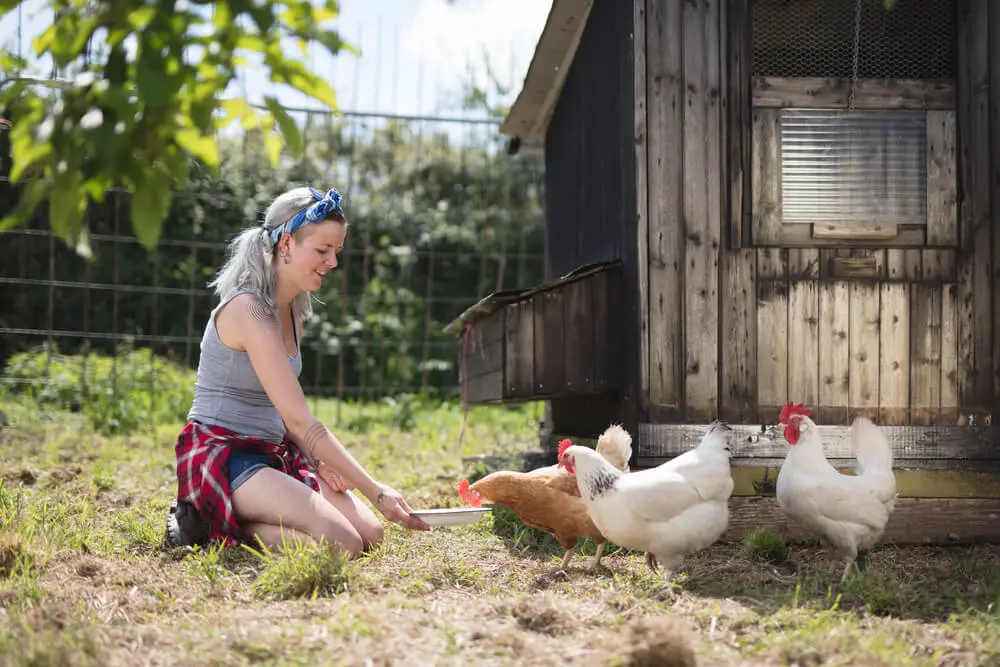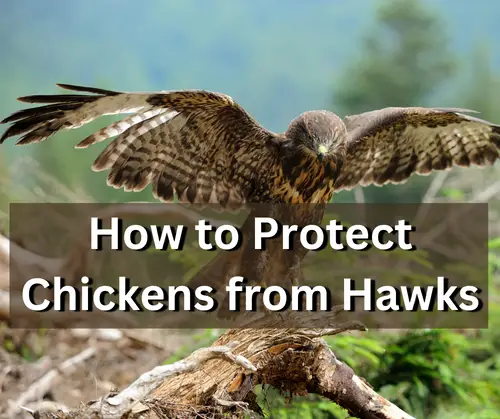Raising chickens can be a fun and rewarding experience, but it also comes with its share of challenges. One of the biggest threats to your flock is hawks. Hawks are natural predators that can swoop down and snatch your chickens right out of their coop or run. In this article, we will discuss how to protect chickens from hawks.
Understanding the Threat of Hawks
Hawks are birds of prey that are found throughout most of the United States. They have sharp talons and beaks, which make them efficient hunters. Hawks have excellent eyesight and can spot a chicken from a great distance. They are attracted to movement and may mistake your chickens for prey.
Types of Hawks That Prey on Chickens
There are several species of hawks that are known to prey on chickens. These include the red-tailed hawk, Cooper’s hawk, and sharp-shinned hawk. These hawks are all native to North America and can be found in both rural and suburban areas.
Signs of a Hawk Attack
If a hawk is in the area, your chickens will likely be on high alert. They may huddle together or hide under bushes or trees. If a hawk does attack, there will be signs of a struggle. Feathers may be scattered around the coop or run, and there may be blood or signs of injury on your chickens.
Best hawk deterrent for chickens?
There are several things you can do to protect your chickens from hawks:
- Build a secure coop and run: The best way to protect your chickens from hawks is to provide them with a secure coop and run. This will keep them safe from not only hawks but also other predators like raccoons and foxes.
- Cover the run: If you have an uncovered run, consider adding a cover. This will not only protect your chickens from hawks but also from other birds like crows and seagulls.
- Keep chickens enclosed: If hawks are a common threat in your area, consider keeping your chickens enclosed in a secure area during the day. This can be a chicken tractor or a fenced area with a roof.
- Use scare tactics: Hawks are afraid of loud noises and sudden movements. You can use scare tactics like hanging shiny objects or playing loud music to keep them away.
- Provide cover: Chickens feel more secure when they have places to hide. You can provide cover by planting bushes or trees around the coop and run.
Additional Measures to Protect Chickens from Hawks
In addition to the above methods, there are a few other things you can do to protect your chickens from hawks:
- Train a guard dog: A guard dog can be an effective deterrent to hawks and other predators.
- Use predator’s eyes: You can purchase predator eyes, which are large stickers that look like the eyes of a predator. These can be placed on the coop or run to scare away hawks.
- Install netting: Netting can be installed over the run to prevent hawks from flying in.
- Rotate the run: If you have a portable run, you can rotate it around your yard to prevent hawks from becoming familiar with its location.
Can hawks be trained to stay away from my chickens? No, hawks are wild birds and cannot be trained to stay away from your chickens. However, there are scare tactics you can use to keep them at bay, such as predator eyes, loud noises, and shiny objects.
What kind of cover should I use to protect my chickens from hawks?
You can use a variety of materials to cover your chicken run, such as bird netting, wire mesh, or even a tarp. The important thing is to make sure the cover is securely fastened and does not have any holes or gaps where hawks can get through.
Can I use fake owls to scare away hawks?
While fake owls can be effective in scaring away some birds, they are not very effective against hawks. Hawks are intelligent birds that can recognize a fake owl and may not be deterred by it.
What should I do if a hawk attacks my chickens?
If a hawk attacks your chickens, it is important to act quickly to protect them. You can try to scare the hawk away by shouting or throwing objects at it, but be careful not to harm the hawk. If your chickens are injured, provide them with medical care as soon as possible.
Do hawks only hunt during the day?
Most hawks are diurnal, which means they hunt during the day. However, some hawks, such as owls, hunt at night. It is important to protect your chickens from hawks and other predators both day and night.
Conclusion
Protecting your chickens from hawks requires a combination of methods. Building a secure coop and run, covering the run, keeping chickens enclosed, using scare tactics, and providing cover are all effective ways to keep hawks at bay.

Shannon Stansberry has been engaged in the business of raising chickens for more than 12 years. In 2016, she accomplished the Agriculture & Natural Resources program at Mt. San Antonio College. At present, she tends to more than 80 chickens on her 4-hectare farm. Shannon regularly shares her insights and experience on how to raise healthy and contented chickens on the platform Typesofchickens.com

